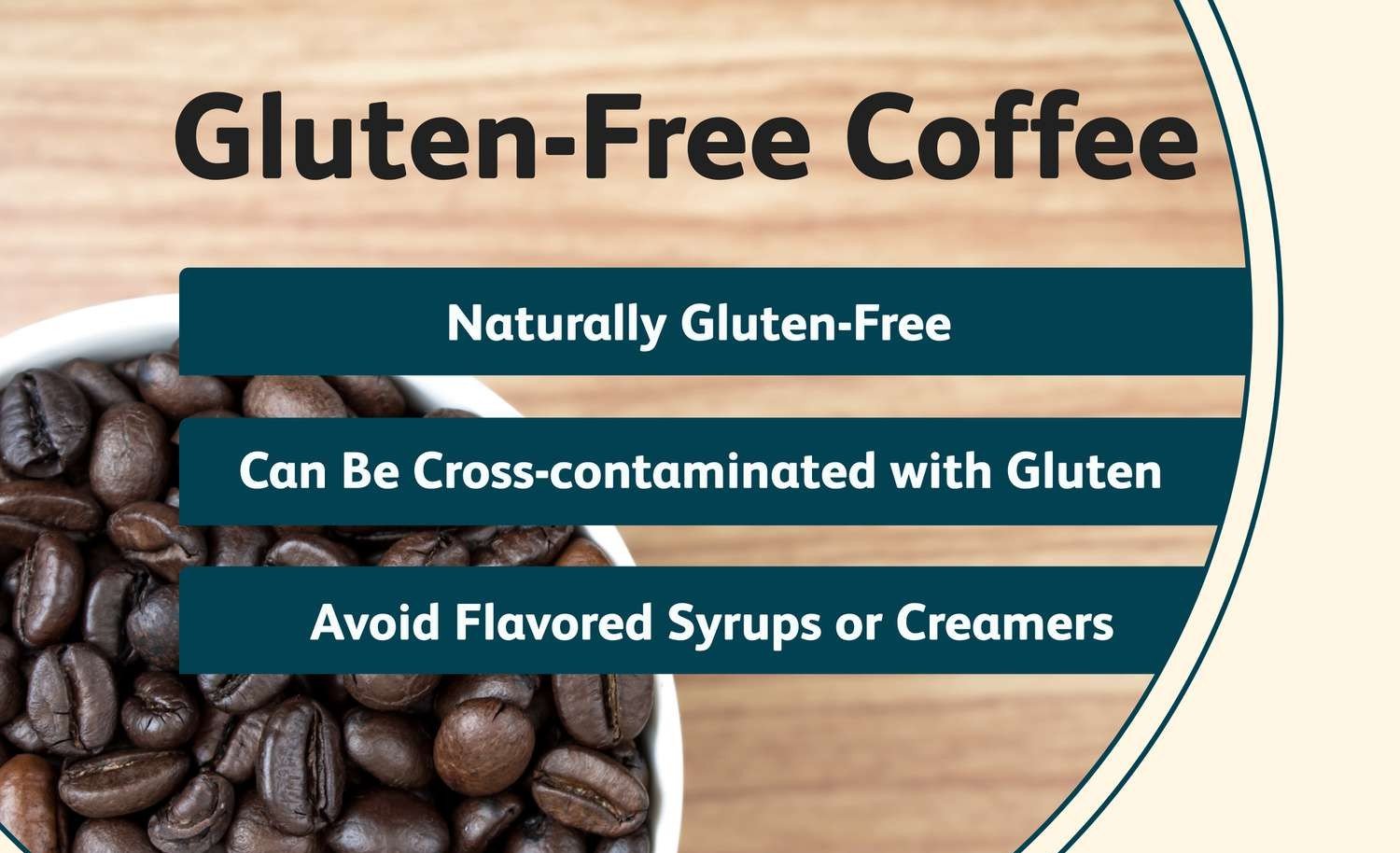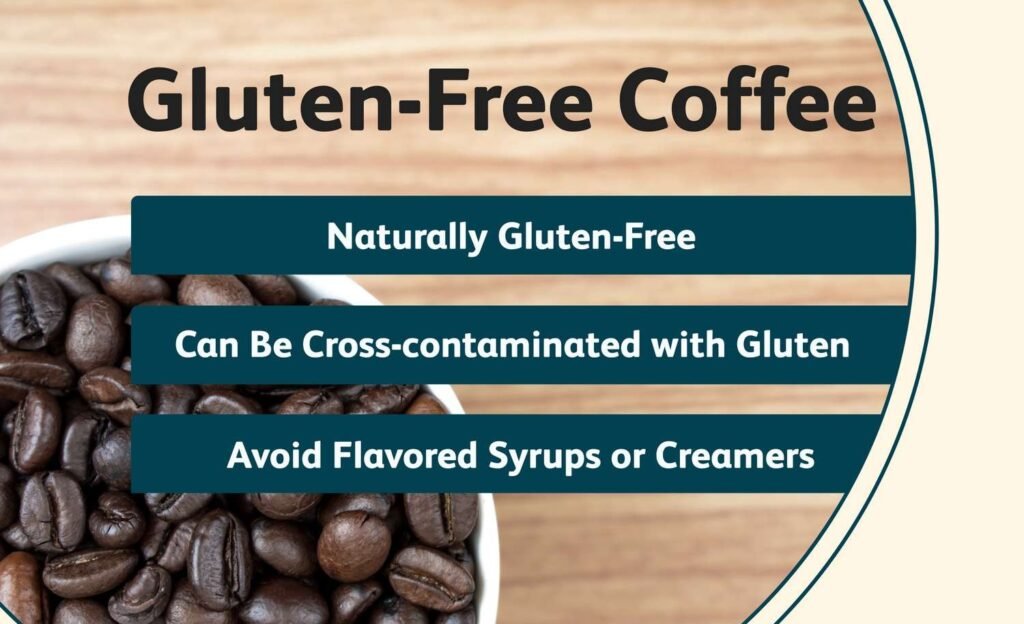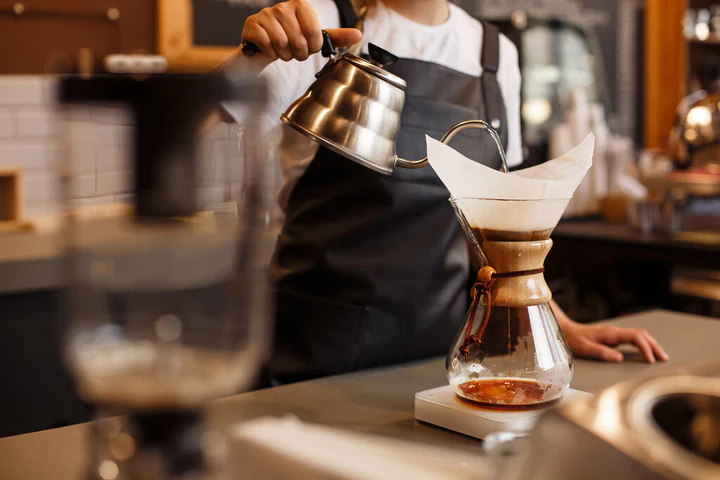Is Coffee Gluten-Free? Separating the Beans from the Buzz
The Sip That Sparked Suspicion

It started with a latte.
Emma had just sat down with her favorite oat milk cappuccino at a local café when her stomach tightened. A dull ache spread across her gut — familiar and unwelcome. Diagnosed with Celiac disease two years ago, she was meticulous about what she ate. The only thing new? That latte.
She asked herself the one question every gluten-sensitive coffee lover dreads:
“Is coffee gluten free?”
If you’ve ever wondered the same — whether due to gluten sensitivity, autoimmune issues, or just health curiosity — you’re not alone.
In this article, we’ll explore whether your daily brew is gluten-free, where gluten can sneak into your cup, and how to confidently enjoy coffee without compromising your health.
So… Is Coffee Gluten-Free?
Yes — plain, unflavored coffee is naturally gluten-free.
Coffee beans come from the Coffea plant, which isn’t even remotely related to wheat, barley, or rye — the grains that contain gluten. In their pure roasted form, coffee beans contain zero gluten.
The National Celiac Association confirms that black coffee, whether brewed at home or purchased from a reputable source, is generally safe for people with Celiac disease or gluten intolerance.
🧠 Source: National Celiac Association
Where Gluten Hides in Coffee
The coffee itself isn’t the issue — the risk comes from additives, flavorings, and cross-contamination.
Let’s break it down:
1. Flavored Coffee
Pre-ground flavored coffees (e.g., hazelnut, vanilla latte, pumpkin spice) often contain additives or carriers derived from gluten.
Some brands use malt-based flavorings (derived from barley).
Others may include modified food starch, which could be wheat-based.
Always check the ingredient list or call the manufacturer.
✅ Pro tip: Choose brands that specifically state “gluten-free” on the label.
2. Instant Coffee
While most instant coffees are gluten-free, some cheaper brands use fillers or are produced on equipment shared with gluten-containing products.
📊 A 2019 report from ConsumerLab found that 6 out of 24 tested instant coffee brands had potential cross-contamination risks — especially from facilities that also produce cereals or energy drinks.
3. Coffee Creamers and Syrups
Many coffee creamers — especially powdered or flavored ones — may include:
Hydrolyzed wheat protein
Maltodextrin (wheat-derived)
Thickeners or flavor enhancers with hidden gluten
Likewise, syrups used in cafés (like caramel or cookie dough) are not always gluten-free.
4. Cross-Contamination in Cafés
Even if you order a plain espresso, if it’s made on equipment used for oat-based or gluten-containing drinks, trace gluten exposure is possible.
Risky café practices include:
Using the same steam wand for oat milk and regular milk without cleaning
Grinding flavored beans in the same hopper as regular beans
Sharing blenders between smoothies and frappes with gluten-based ingredients
What About Decaf?
Here’s a curveball: decaf coffee can sometimes involve processing agents derived from wheat — though it’s rare.
Look for Swiss Water Processed decaf, which is chemical-free and gluten-safe. Avoid generic decaf unless it specifically states it’s gluten-free.
✅ Brands like Kicking Horse, Peet’s, and Volcanica offer certified gluten-free decaf options.
Safe Coffee Practices for Gluten-Free Living
Here’s how to enjoy your coffee worry-free if you’re gluten-sensitive:
✅ Brew at Home
Grinding your own beans and brewing at home is the safest way to control gluten exposure.
✅ Choose Certified Gluten-Free Brands
Look for third-party certifications from:
Gluten-Free Certification Organization (GFCO)
National Celiac Association
Celiac Support Association
✅ Skip the Syrups
Use natural sweeteners (honey, maple syrup) or unsweetened nut milks. Or explore gluten-free syrups from brands like Torani Naturals or Monin Pure.
✅ Clean Equipment Regularly
If you share your coffee gear with others (especially in multi-diet homes), clean grinders, espresso machines, milk frothers, and cups thoroughly.
Brands That Offer Gluten-Free Coffee
Here are a few trusted names:
| Brand | Status |
|---|---|
| Death Wish Coffee | 100% gluten-free |
| Bulletproof Coffee | Gluten-free certified |
| Peet’s Coffee | All beans gluten-free, some drinks may not be |
| Kicking Horse Coffee | Certified organic, gluten-free |
| Equal Exchange | No gluten ingredients, organic |
| Volcanica Coffee | Offers Swiss Water Processed gluten-free decaf |
Always double-check labels — formulations can change.
What Coffea Alchemy Believes
At Coffea Alchemy, we believe everyone deserves to enjoy coffee — without fear or compromise. That’s why our content focuses on empowering coffee lovers to make informed, delicious, and inclusive choices. Whether you’re gluten-free by necessity or by lifestyle, we’re here to guide your next perfect brew with clarity and confidence.
Gluten-Free Coffee Recipes You’ll Love
Try these simple gluten-free coffee creations:
☕ Cinnamon Maple Iced Latte
Cold brew
Splash of almond milk
1 tsp maple syrup
Dash of cinnamon
☕ Honey Coconut Flat White
Double espresso
Steamed coconut milk
½ tsp honey
Sprinkle of nutmeg
Gluten-Free Coffee FAQs
❓ Can I drink Starbucks if I’m gluten-free?
Some drinks are gluten-free, but cross-contamination is a risk. Always ask your barista and check Starbucks’ allergen menu.
❓ Is oat milk gluten-free?
Only if labeled “gluten-free.” Regular oat milk may contain trace gluten from processing. Use certified brands like Califia Farms or Oatly Gluten-Free.
❓ Can I trust Nespresso or Keurig pods?
Most are gluten-free, but flavored varieties could pose a risk. Use plain pods or consult the brand’s allergen guide.
Final Thoughts
So, is coffee gluten-free? Absolutely — as long as you’re mindful of what goes into the cup. Coffee in its purest form is safe, satisfying, and free from gluten. The danger lies in the details: additives, flavorings, syrups, and shared equipment.
By sticking to clean beans, safe brands, and smart brewing habits, you can keep your mornings joyful and your gut happy.
What’s your favorite way to enjoy a gluten-free coffee ritual?
Related Post
Our newsletter
Subscribe to our weekly newsletter & keep up with our latest recipes and organized workshops. You can unsubscribe at any time.


